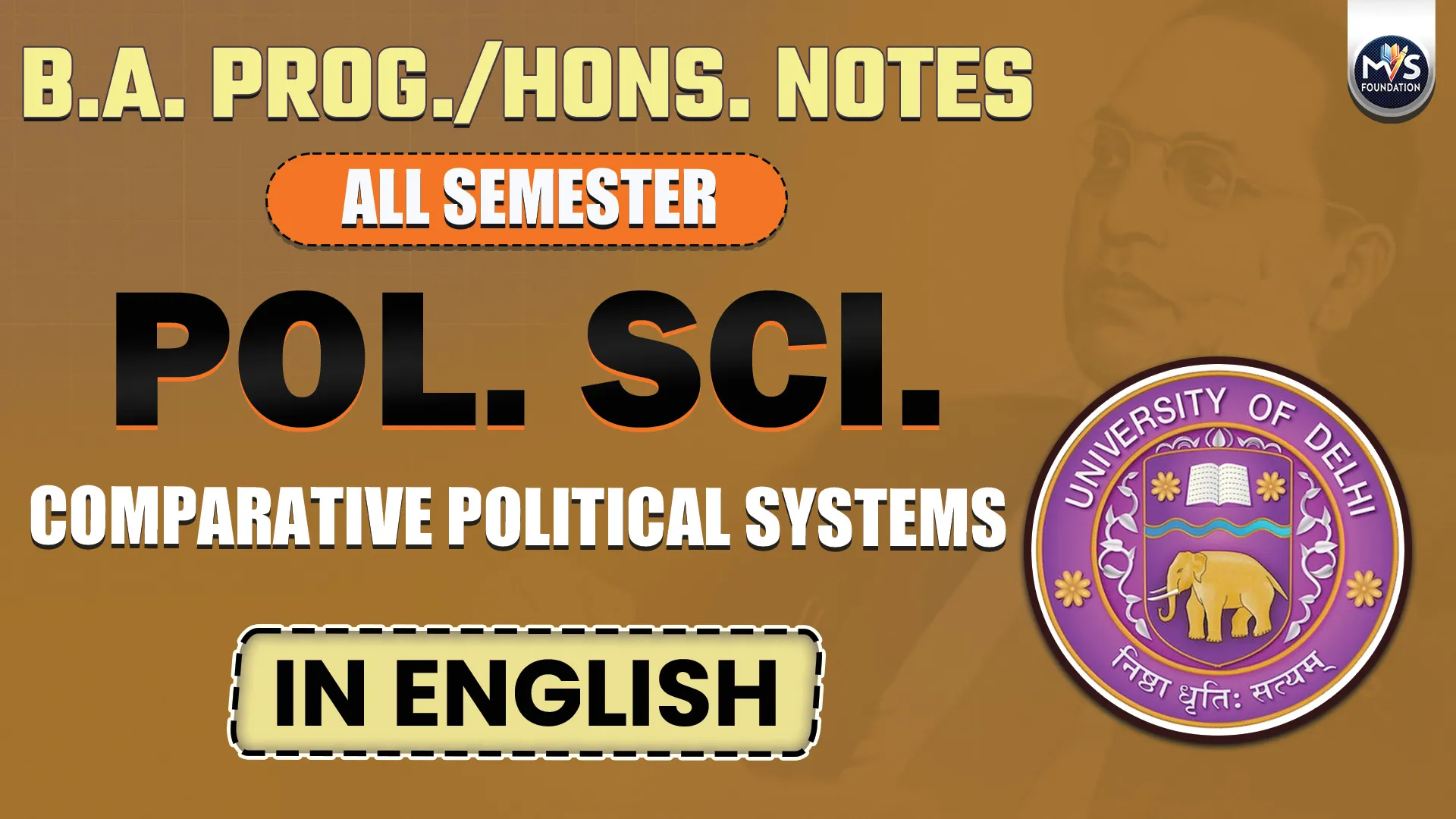
Get in Touch
We will get back to you within 24 hours.
Welcome to MVS Blog

Q1 Discuss the political traditions and constitutional development of Britain. Also, mention the main features of the British Constitution.
Answer -
Introduction
Britain, known as the United Kingdom (UK), is a strong and historic union of four countries: England, Scotland, Wales, and Northern Ireland. Its constitution is unwritten, based on traditions and old documents, which can be easily adapted with time. At one point, the British Empire was so vast that it was said, "The sun never sets on it. "Having ruled such a vast empire, Britain still plays an influential role in global politics, trade, and diplomacy.
Views of various thinkers on the political system and constitution of Britain:
Britain's Political and Constitutional Development
Britain's political traditions and its constitutional development are among the oldest and most influential systems in the world. This system is a blend of democratic ideas, historical events, and traditions, which has transformed Britain into a strong and modern constitutional monarchy and parliamentary democracy. As a result, this system remains stable, robust, and an inspiration for the world even today.
1. Magna Carta (1215)
Magna Carta was the historic document that established for the first time that even the king was subject to the law. It was issued by King John in 1215, promising that he would not levy arbitrary taxes and would rule justly. This document became the foundation of due process, liberty and civil rights. It made it clear that there should be limits on the power of the king, which is the first step in Britain's constitutional development.
2. Glorious Revolution (1688) and Bill of Rights
The Glorious Revolution of 1688 was a significant turning point in British constitutional history. In this revolution, James II was removed from power and William III and Mary II were placed on the throne. This revolution was bloodless, hence it is called "Glorious. "It established the supremacy of Parliament and laid the foundation of constitutional monarchy. The Bill of Rights, passed in 1689, rejected the divine rights of the king and ensured that the king would remain under the authority of Parliament. It strengthened the protection of citizens' rights, such as freedom of speech and fair trial. Thus, the Glorious Revolution marked a strong step towards democratic governance in Britain.
3. Reform Acts (19th Century)
The Reform Acts passed in 19th century Britain played a vital role in making democracy more inclusive. The first Reform Act, known as the "Great Reform Act of 18.32 "improved representation in Parliament. Later, the Reform Acts of 1867 and 1884 granted voting rights to the working class and people in rural areas, thereby expanding the scope of democracy. In 1918, the "Representation of the People Act" gave limited voting rights to women and the working class after World War I, and by 1928, it was extended to all adults. This laid the foundation of "universal suffrage."
4. Empowerment of Parliamentary Democracy
As a result of the Reform Acts, the power of the House of Commons continued to increase, while the role of the House of Lords gradually became limited. This led to the emergence of a strong and representative democracy in Britain, where the elected representatives of the people began to play a decisive role in policymaking. This change was a stage in constitutional development that made democracy practical and accountable.
Key Features of the British Constitution:
1. Unwritten but Well-Organized Constitution - The British Constitution is not written in a single book or document. It is formed through laws made by Parliament, court judgments, old traditions, and historical documents (like the Magna Carta). Because of this, it can change with time and adapt to new situations. This is why it is considered the world's oldest and most successful unwritten constitution.
2. Supremacy of Parliament - In Britain, Parliament is considered the highest authority. This means
that any law made by Parliament is final and cannot be struck down by any court. Parliament has complete freedom to change or abolish old laws. This is why Parliament is regarded as the most powerful legislative body in Britain.
3. Flexible Constitution- The British Constitution is very flexible because it does not require any
complex procedure to be amended. If Parliament wishes, it can change the constitution just like an ordinary law. Due to this flexibility, the constitution easily adapts to changing needs over time and ensures stability in governance.
4. Constitutional Monarchy - In Britain, the king or queen is only a ceremonial head of state. The
real power lies with the elected government, which is accountable to the people and Parliament. The monarch performs all duties on the advice of the government. This system maintains a balance between monarchy and democracy, and governance remains under the control of the people.
5. Government Based on Common Law and Conventions- Many rules in the British Constitution are based on traditions and past court decisions rather than formal laws. These rules are called "constitutional conventions." Even though they are not written, the government follows them and does not violate them. This gives the constitution stability and continuity.
Conclusion:
Britain's political traditions and constitutional development are one of the most
stable, ancient and practical systems in the world. Its unwritten but systematic constitutional system, supremacy of parliament, flexibility, constitutional monarchy and governance based on traditions make it unique. That is why Britain's system of governance is still successful and an example for the world.
0 Response